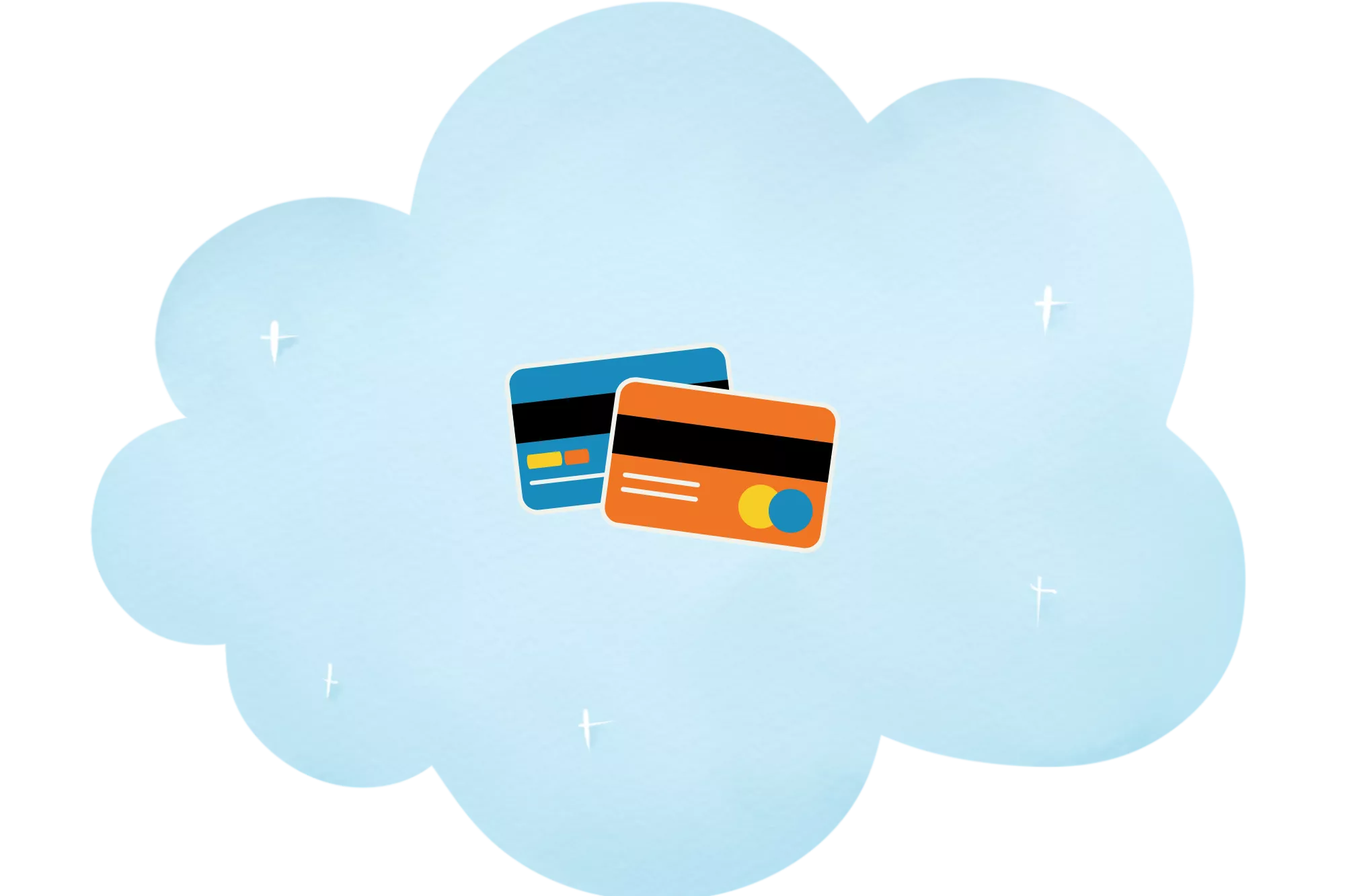A 2024 survey conducted by the Federal Reserve Bank of Atlanta indicates that credit and debit cards are the most preferred method of payment in the U.S. Credit cards alone accounted for 32% of all consumer transactions in the U.S., while debit cards and cash accounted for 30% and 16%, respectively. Going by these figures, if your business doesn’t accept card payments, it’s missing out on revenue.

While card payments are key for business growth, obtaining a traditional merchant account can be challenging for businesses, especially those deemed high-risk liabilities by financial institutions. Fortunately, several payment processing alternatives exist, allowing all types of businesses to accept credit card payments online without merchant accounts. [1] The Federal Reserve. “2024 Findings from the Diary of Consumer Payment Choice“. Accessed February 5, 2025.
Merchants should carefully choose a processing partner, especially a payment aggregator. These alternatives usually have massive disparities in payment processing fees, features, funding timeframes, and other essential factors.
This guide explores how to accept credit card payments without a merchant account and how merchant accounts compare to payment aggregators. Continue reading if your business is looking for a new payment processing solution!
What is a Merchant Account?
A merchant account is a bank account used to process credit and debit cards. When a business obtains a merchant account for payment processing, the acquiring bank utilizes the merchant account to hold transaction funds during payment settlement. Once payment is finalized, the money is transferred to the merchant’s business bank account.
Merchant accounts, which you can obtain through a merchant service provider, don’t function like traditional business bank accounts, as you can’t use them to make payments or withdraw cash. Their sole function is to keep the transaction settlement process streamlined.
Pros and Cons of a Merchant Account
Let’s explore the advantages and disadvantages of third-party payment processors:
Pros
- Affordable Processing Fees: Merchant account providers offer affordable and transparent processing fees called interchange fees. While these fees aren’t flat-rate like with third-party payment processors, it’s easier to see a full breakdown of what you’re paying to the processor and other transaction stakeholders.
- Dedicated Support: With a merchant account, you’re the only merchant with access to your account. This means you’ll receive dedicated, singular support regarding your account and immediate access to help when needed.
- Quicker Funding: As merchant accounts are dedicated to a single business, funds won’t take long to reach your business bank account. This way, your cash flow doesn’t suffer due to slow funding timeframes.
- Lower Chances of Account Freezes: Merchant account providers work closely with their merchants to navigate chargebacks and other account risks, reducing the likelihood of account freezes.
- Integration Options: Many merchant accounts offer full integration with payment gateways and other payment technologies, making it simple to access online and over-the-phone payments.
Cons
- Longer Underwriting Processes: Merchant accounts require additional due diligence, lengthening the underwriting process. Accessing a new merchant account could take up to four weeks for the riskiest business types.
- Harder To Predict Average Processing Costs: Many merchant account providers often utilize “interchange plus” pricing and other non-flat-rate pricing models, so predicting their average processing costs is harder. Prices vary depending on card brands and other factors, so it’s nearly impossible to know their exact costs per transaction. With this being said, this pricing model is often cheaper for merchants in the long run because of how inexpensive some cards are.
How to Accept Payments Without a Merchant Account
Due to the difficulty of obtaining a merchant account, some businesses seek other payment alternatives. For those having trouble securing a merchant account, here are other ways to accept credit card payments:

Online
It’s pretty easy to accept payments online without a merchant account. Simply connect your eCommerce platform to a payment service provider (PSP). Integrating these providers with popular eCommerce platforms such as Shopify and BigCommerce is typically straightforward. Also called payment aggregators, these providers aggregate numerous merchants onto a single merchant account. This allows you to access merchant services without applying for a dedicated merchant account.

In-Person
Many PSPs mentioned previously also provide face-to-face payment options. PayPal, for example, acquired Zettle in 2018 to enter the in-person payment market. [2] Reuters. “PayPal expands retail payments with $2.2 billion Zettle buy“. Accessed March 17, 2023.
Merchants also have the option to work directly with a point of sale (POS) provider. Many POS platforms are compatible with various payment processors, several of which even have in-house processing solutions.

Mobile
Most PSPs offer merchants mobile payment options. Usually, merchants can download an app on a smartphone or tablet and process payments using mobile card readers. Some payment processors also support QR code payments for simple and secure payments on the go.
For Personal Use
Using a PSP like PayPal can simplify sending invoices and accepting payments if you operate as a sole proprietor. Many PSPs allow for digital invoicing, including a link to a payment portal, making it simple for your customers to pay using a credit card, funds transfer, or various alternative payment methods.
Pros and Cons of a Third-Party Payment Processor
Let’s explore the advantages and disadvantages of third-party payment processors:
Pros
- Quick Approval Timeframes: Third-party payment processors offer quick access to payment processing. While an account may face some initial volume restrictions, a third-party payment processor will likely offer instant access to credit card payments if a merchant meets its baseline requirements.
- Limited Requirements: Third-party payment processors have much lower requirements than merchant account providers. Some will not even ask for evidence of a registered business, making this a good option for accepting credit cards without a merchant account.
- Easy-to-understand Pricing: Many third-party payment processors offer flat-rate pricing, meaning you won’t pay different fees for different card brands. This pricing model makes it easy to predict processing fees and offers complete payment flexibility to customers.
- Secure and Widely Recognized: Many third-party payment processors have brand recognition, making them popular among consumers. Additionally, these processors spend considerable money creating secure payment infrastructure to support merchants and customers.
Cons
- Slow Funding: Many third-party payment processors funnel multiple merchants onto a single merchant account, so it can take a long time for funds to be transferred to a merchant’s business, creating cash flow issues down the line.
- Unexplained Account Freezes & Closures: Many third-party payment processors are known for freezing merchant accounts without warning and shutting them down. This makes it challenging to access cash or continue accepting payments from customers. [3] Bloomberg. “PayPal Sued for Freezing Customer Accounts Without Explanation“. Accessed March 17, 2023. Since PSPs don’t underwrite businesses upfront, they approve merchants with little to no prerequisites, only to terminate them after the final review. These scenarios can cause significant harm to your business if you don’t have payment collection alternatives in place.
- Excessive Fees: While third-party payment processors typically provide flat-rate pricing, this pricing model hides large markups, which cost businesses significant money in the long run. Additionally, by implementing flat-rate pricing, you can’t take advantage of the competitive pricing offered by merchant account providers.
- Poor Customer Service: Third-party payment processors are notorious for providing sub-par dedicated customer support. Their customer service is typically stretched thin across a broad range of clients, which can be frustrating if you require immediate help with an issue.
- Low Tolerance for High-Risk or High-Volume Businesses: Third-party processors tend to air on the side of caution. If you process over a certain amount per month or you have a more risky business type, these providers are unlikely to do business with you for very long.
Merchant Account vs. Payment Aggregator: Which Is Best for You?
Choosing the best payment option for your business can help you save time, money, and hassle. So, should your business choose a merchant account or a payment aggregator?
The answer depends on your business size, processing history, industry type, and payment needs.

If you’re operating a new business and need immediate access to payment processing, a payment aggregator may be a better choice in the short term, as payment aggregators offer almost instant access to credit card processing.
While payment aggregators make signing up for an account easy, they also have high turnover rates. Frozen and suspended accounts are commonplace, leaving merchants in a bind without any clear payment options.
Merchant accounts offer more reliability. Businesses using merchant accounts benefit from lower transaction fees, more account stability, and dedicated support when needed. Although approval for a merchant account can take a couple of weeks, there are clear advantages to this payment processing option.
In addition, high-risk merchant accounts exist for businesses operating in more risky industries. Merchant accounts can offer higher chargeback thresholds, fraud prevention services, and additional security tools to help high-risk businesses access affordable card payments.
How PaymentCloud Can Help
At PaymentCloud, we provide reliable merchant accounts to businesses operating in high-risk industries. If your business struggles to obtain a merchant account from traditional financial institutions, you’re not limited to using a payment aggregator — we’ve got you covered!
Our merchant accounts suit all payment types, including online, in-person, mobile, and over-the-phone payments. Our solutions are compatible with third-party integrations like payment gateways and other cutting-edge payment software options. Moreover, we provide dedicated account managers to guide you through the approval process to set up so you can start accepting credit card payments as quickly as possible.
Choosing a provider who understands your business’s needs can help streamline your credit card processing experience and boost your overall bottom line. Ready to start accepting credit card payments? Our application process takes just five minutes! Sign up today.
How To Accept Credit Card Payments Online Without Merchant Accounts: FAQs
What’s the cheapest way to accept credit card payments?
The cheapest way to accept credit card payments depends on many factors. While payment aggregators often charge flat-rate pricing to customers, this easy-to-understand pricing model can hide excessive fees. On the other hand, merchant account providers, which often charge different fees depending on card brands and other factors, typically offer cheaper fees in the long run.
On the other hand, merchant account providers, which often charge different fees depending on card brands and other factors, typically offer cheaper fees in the long run.
Do I have to have a merchant account to accept credit cards?
No, you can accept credit card payments online without merchant accounts. Merchant accounts provide a range of benefits — affordable fees, dedicated support, and quick funding timeframes, to name a few — and merchants can also accept credit cards with a payment aggregator.
Payment aggregators use a single merchant account for several merchants, making the underwriting process quicker. However, payment aggregators are often more unpredictable and don’t always offer reliable support to merchants.
Do I need to have a registered business to take card payments?
No, you don’t need to officially register a business to begin accepting card payments. Payment service providers allow individuals to begin accepting credit card payments before they register as a business, making it a suitable option for sole proprietors. Merchant account providers require proof of a registered business and business bank account before you can begin accepting credit card payments.
Is getting a merchant account difficult?
The difficulty level for obtaining a merchant account depends on your business, sector, the account provider, and many other factors. For example, acquiring a merchant account from a traditional financial institution can be difficult if you operate in a high-risk industry or your business has a history of excessive chargebacks. In this case, specialized high-risk providers have the necessary resources and long-standing relationships with processing banks to help you get a merchant account.
How do small businesses accept credit cards?
Small businesses accept credit cards the same way normal-sized businesses do. Once approved for a merchant account or an account with a payment aggregator, business owners can start accepting payments. Both options have advantages and disadvantages.







